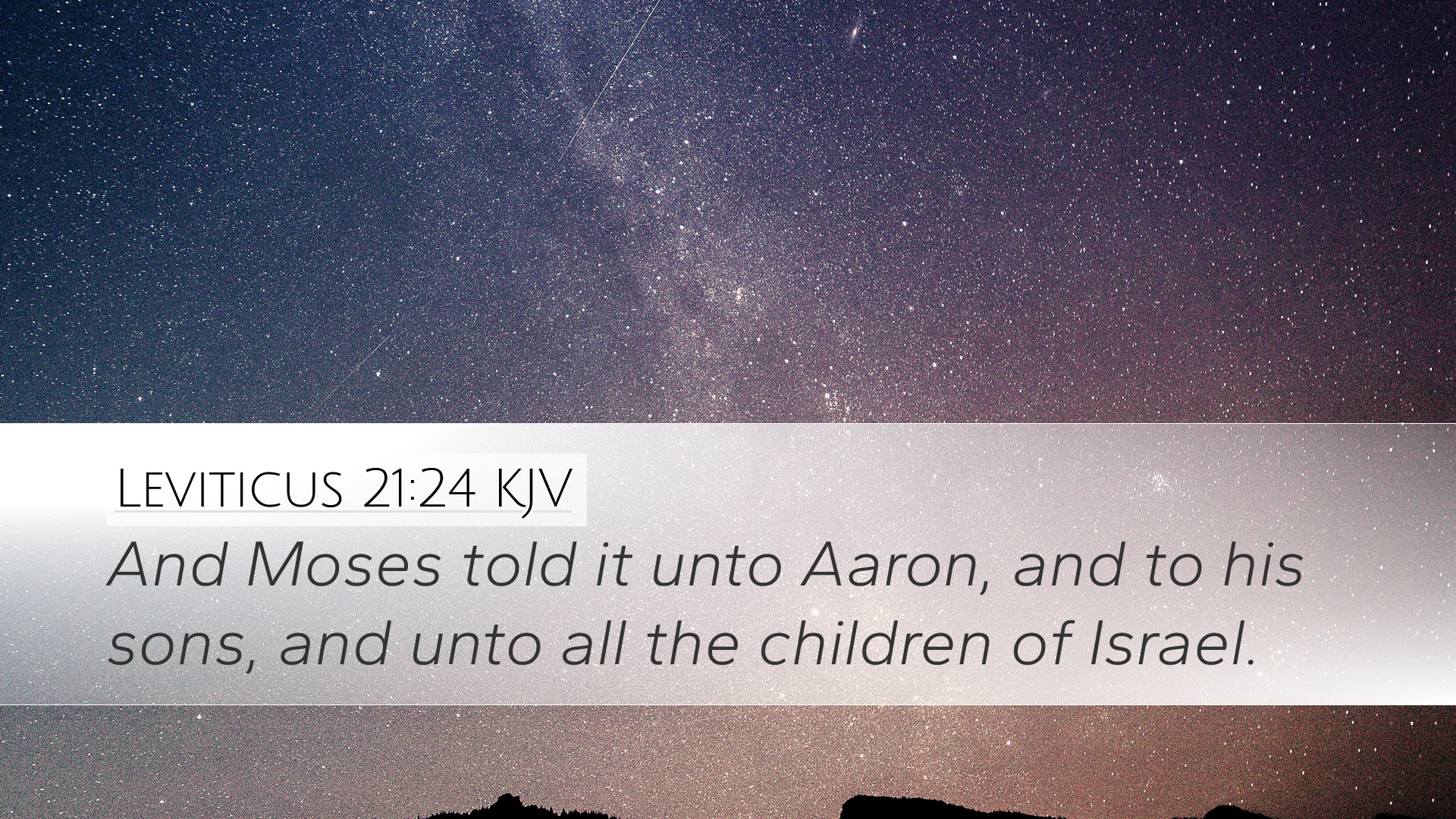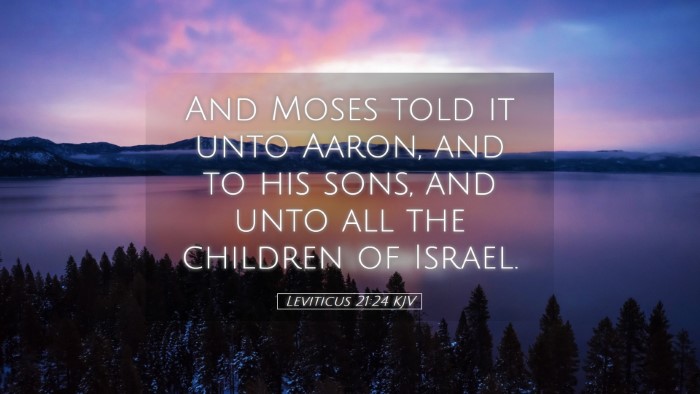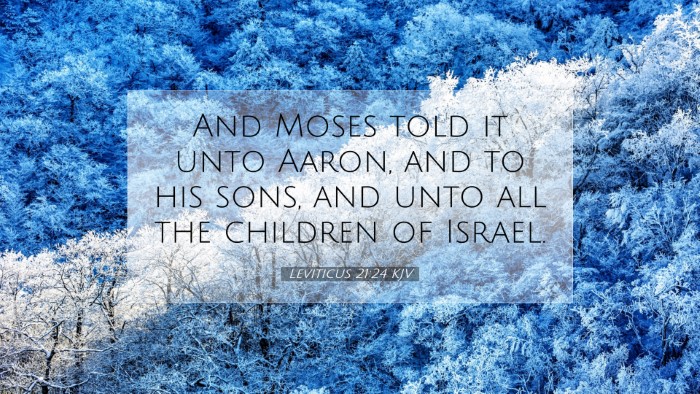Commentary on Leviticus 21:24
Bible Verse: Leviticus 21:24 (KJV) - "And Moses told these things unto the children of Israel: and the children of Israel did all, as the LORD commanded Moses."
Introduction
The Book of Leviticus is fundamentally concerned with the holiness of God and the call to holiness for His people. Leviticus 21 specifically addresses the laws applicable to the priesthood, emphasizing the unique role of the priests and the ways in which they must maintain their holiness before God. This particular verse serves as a concluding statement following a series of commandments concerning the conduct and qualifications of priests.
Exegesis of the Verse
This verse encapsulates both Moses’ role as a mediator of God’s commandments and the response of the children of Israel to those commandments. It holds significant theological implications regarding obedience, leadership, and the communal responsibility of the Israelites.
Moses as a Mediator
According to Matthew Henry, Moses' authoritative role as a leader is highlighted; he is not merely a deliverer of the law but also a faithful servant who conveys God’s instructions faithfully to His people. He represents the connection between God and Israel, underscoring the importance of divine authority exercised through chosen leaders. Moses' steadfastness in delivering God's commandments is crucial in establishing a covenant community.
Response of Israel
Henry also notes the response of the people: “and the children of Israel did all, as the LORD commanded Moses.” This illustrates the idea of corporate obedience, a theme that is recurrent throughout the Pentateuch. The people’s willingness to follow God’s commandments reflects their commitment to the covenant established with God. Here, Albert Barnes emphasizes that the obedience of Israel is essential not just for individual holiness, but for the collective identity of Israel as a nation dedicated to God.
Theological Significance
This verse not only marks the conclusion of the specific commandments but also reinforces the concept of holiness that permeates Leviticus. The Theological Dictionary of the New Testament points out that the call to holiness extends beyond the priests to all of Israel, establishing a community distinct from other nations.
Holiness and Obedience
According to Adam Clarke, the meticulous nature of the laws indicates God’s desire for His priests to be completely separated from anything impure or unholy. This separation is a physical representation of the spiritual purity required for anyone who approaches God. The response to Moses’ instructions indicates a communal recognition of this principle, marking the seriousness with which Israel is to fulfill God's commandments.
Lessons for Today's Believers
The implications of this passage stretch into contemporary application for pastors, theologians, and students of the Bible. Just as Moses faithfully conveyed God’s expectations, today’s leaders must also guide their communities with integrity and clarity. Furthermore, the obedience of the Israelites serves as a powerful reminder of the importance of adhering to God's principles, which remain relevant for believers today.
Conclusion
Leviticus 21:24 encapsulates essential themes of leadership, obedience, and holiness. Through the faithful transmission of God’s commands by Moses and the obedient response from the Israelites, there is a profound illustration of the community's responsibility to uphold divine standards. As readers reflect on this passage, they are encouraged to seek a deeper understanding of what it means to live in obedience to God, fostering a culture of holiness that honors His commands.


